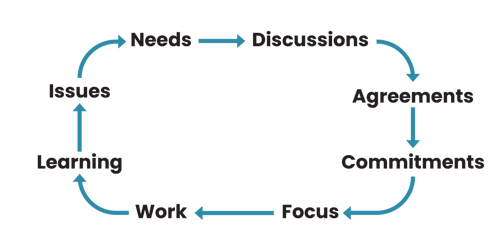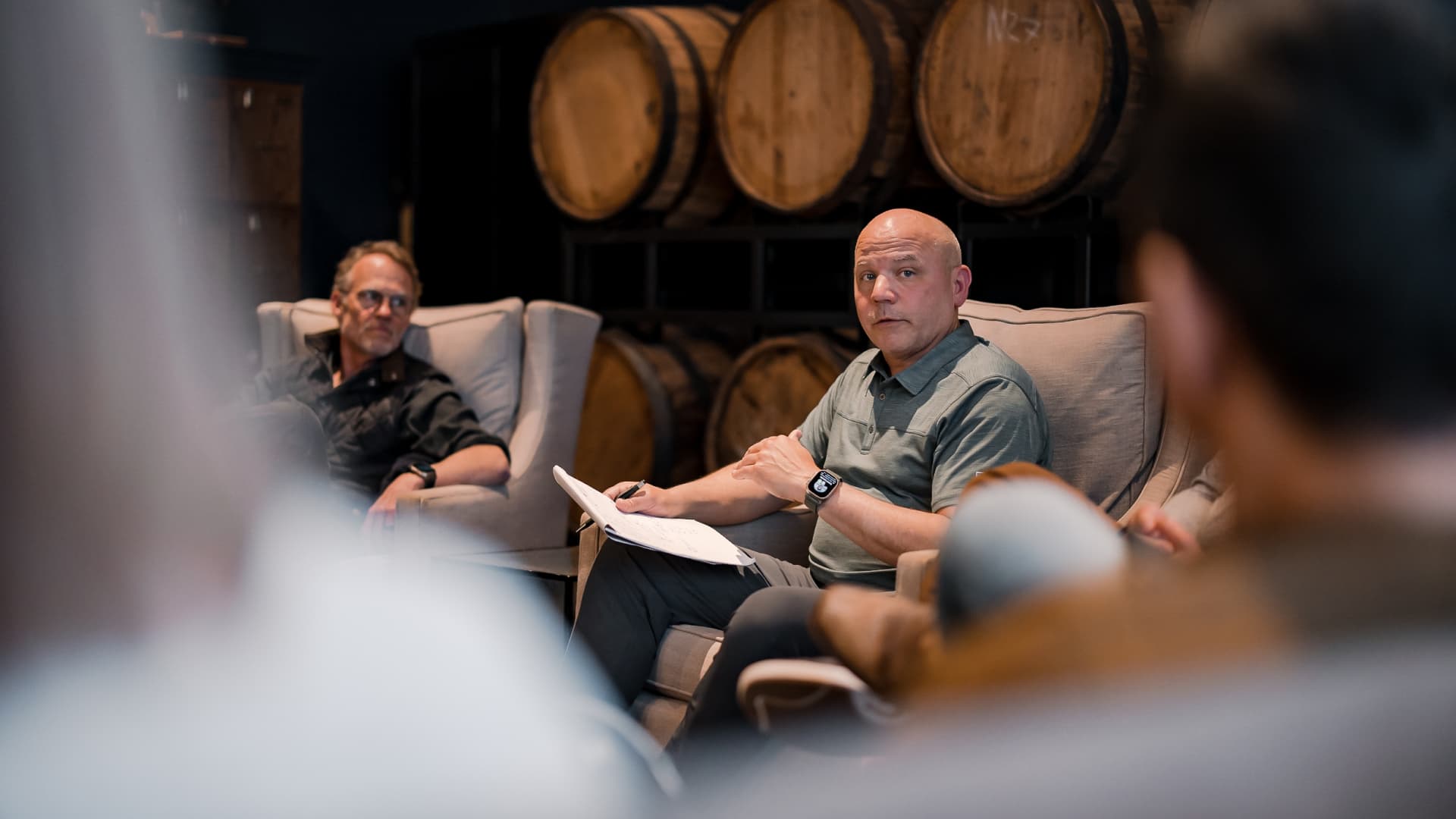Needs Take Shape Through Commitment and Focus
Everyone wants to matter. Individuals do. Teams do. Departments, companies, not-for-profits… they all want to matter.
To matter, we need to connect. Connection is based on matching needs, and to match needs, we must engage in open and transparent dialogue. Those discussions, in turn, will lead us to either agree or disagree.
Sometimes agreements are nothing more than a one-time contract of sorts, and there's no need for an ongoing relationship. Other times, we’re hoping to form an ongoing relationship. The need to form such a relationship does not automatically mean we get to an agreement. But we'll still reach a level of commitment because we have a desire to stay connected — a desire to work together and reach a shared goal.
This commitment naturally leads to a level of focus as we get to work on mutually satisfying our individual needs. But those needs can only be met to the extent that we've established a high level of trust in each other. We call these high-trust relationships.
Within teams, trust begins with ensuring every team member feels their voice is heard, and that it matters. It doesn't mean we always need to agree on everything. On the contrary, healthy organizations and teams have open and sincere conflict. They know they're free to express themselves without fear of reprisal simply because they offer a different viewpoint or idea(s) to reach a shared objective.
This is how teams create high-trust relationships where every member is strong and confident enough to let us know, respectfully, if they disagree or need more time to process an idea on the table. That trust is also how we build a great culture. Everyone feels heard, and whether they agree or disagree, they’re still able to commit in a healthy way.
Great Teams Always Reach Commitment
Great teams are committed to, well, commitment! In other words, high-trust teams know there will be important commitments that need to be made to achieve their goals. That shared responsibility is the foundation for many thriving teams, and it’s rooted in the resilience and desire to go the extra mile for each other to reach those goals.
Great Teams Are Focused
Now, as much as we love commitments, it’s important that we don’t commit too much. That's why reaching a status where we’re fully focused is even greater than reaching commitment. With commitments in hand, the focus is sharpened to do the actual work needed to achieve our shared goals.
Great Teams Do Work That Matters
The best Work — yes, with a capital W — nurtures our high-trust relationships. Doing good work enables us to continue to participate in the game. And the best work enables us to participate in an infinite game, essentially looking beyond the easy wins of the short game (an annual revenue goal, for example) to focus on something much bigger. Organizations that are playing the infinite game do so in perpetuity, always basing their decisions on advancing the company’s Compelling Why. This takes foresight, fortitude, and some real work.
Of course, as we work, we learn. And that learning leads to discussion and growth, which, in turn, leads to both the expansion and elevation of our needs. This evolution leads to another round of discussions… which invariably leads to the need for a new set of commitments.
And so the cycle moves forward.

If you're a leader, especially a leader of a commercial company, I want you to focus on the goal of building a company that participates in an infinite game. My hope for you is you’ll be building and running a highly purposeful and adaptive organization that is 100% clear on its Core Commitments, commitments that include what we call Focus Filters. These Core Commitments are not only explicit, coherent, and resonant, but they’re designed to stand the test of time.
![Winners Corner Cube [Hand Drawn]](https://www.ninety.io/hs-fs/hubfs/chub_backup/Winners%20Corner%20Cube%20%5BHand%20Drawn%5D.png?width=500&height=381&name=Winners%20Corner%20Cube%20%5BHand%20Drawn%5D.png)
As complex systems go — and any young company certainly fits the bill — at Ninety, we are obsessively focused on reaching the Winner's Corner. That said, as a company that is growing close to 100% per year in terms of both revenue and people, we must constantly bring people up to speed.
Our goal for team members who have been with us for at least 180 days is for them to feel like our Core Commitments are at least 90% explicit, coherent, and resonant. Our Core Commitments are things like our Core Values, our Compelling Value Proposition, our goals, our brand, and our Ideal Customer.
We’re highly focused on getting clear about these Core Commitments and then measuring how we’re doing. Why? Well, to summarize a quote from Doc Rivers, “Great players want to know the truth.”
Great companies are no different.
Subscribe to my Founder's Framework newsletter to discover how successful founders leverage proven frameworks to build thriving companies they’ll love forever.





